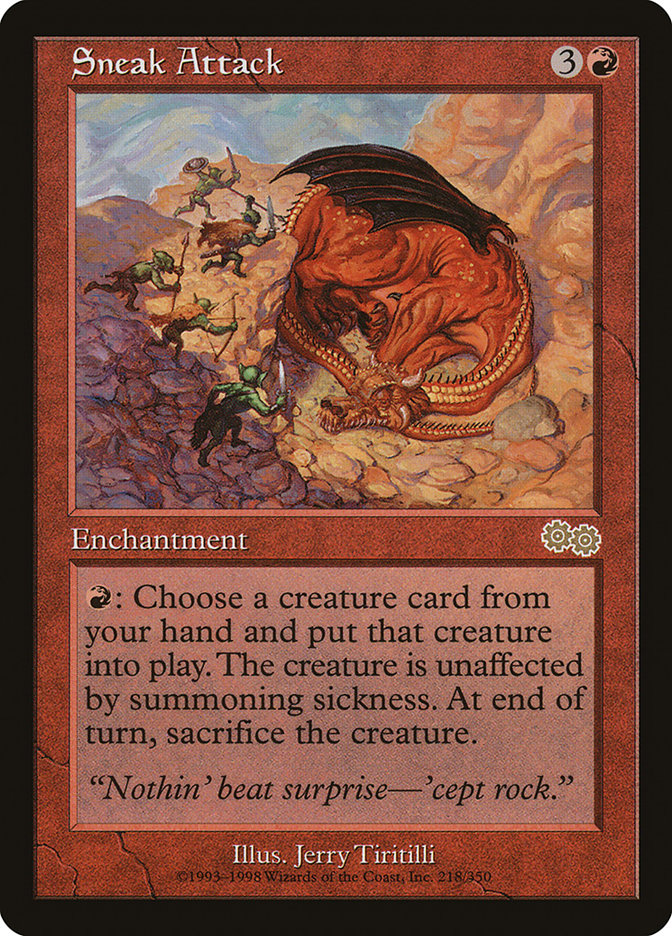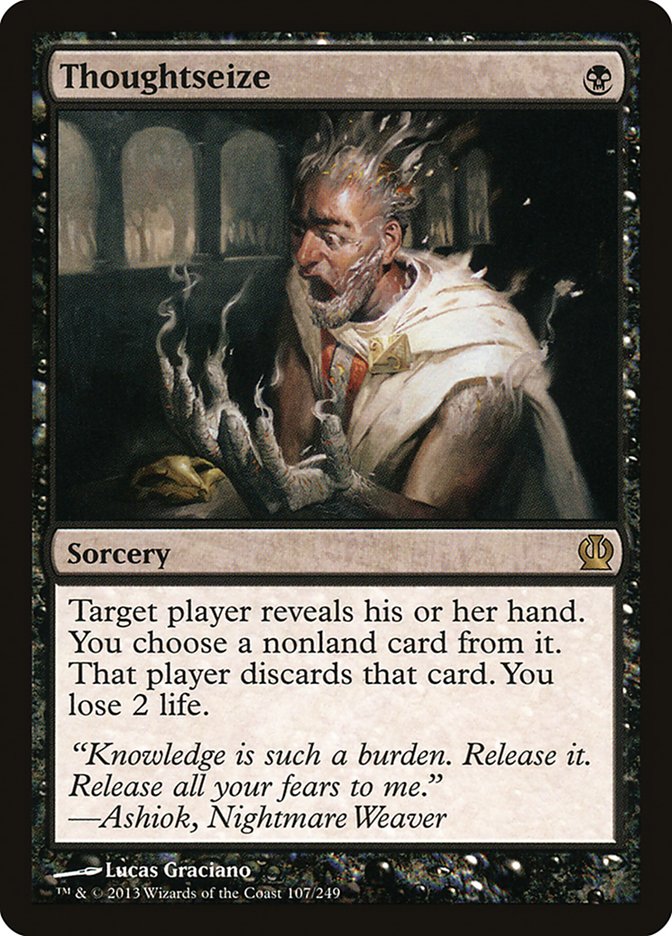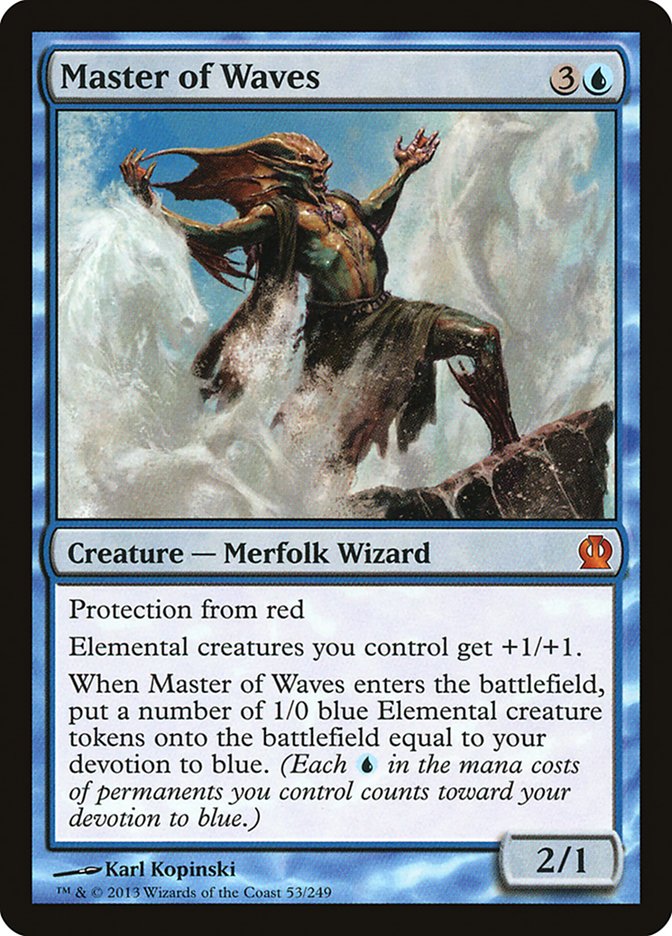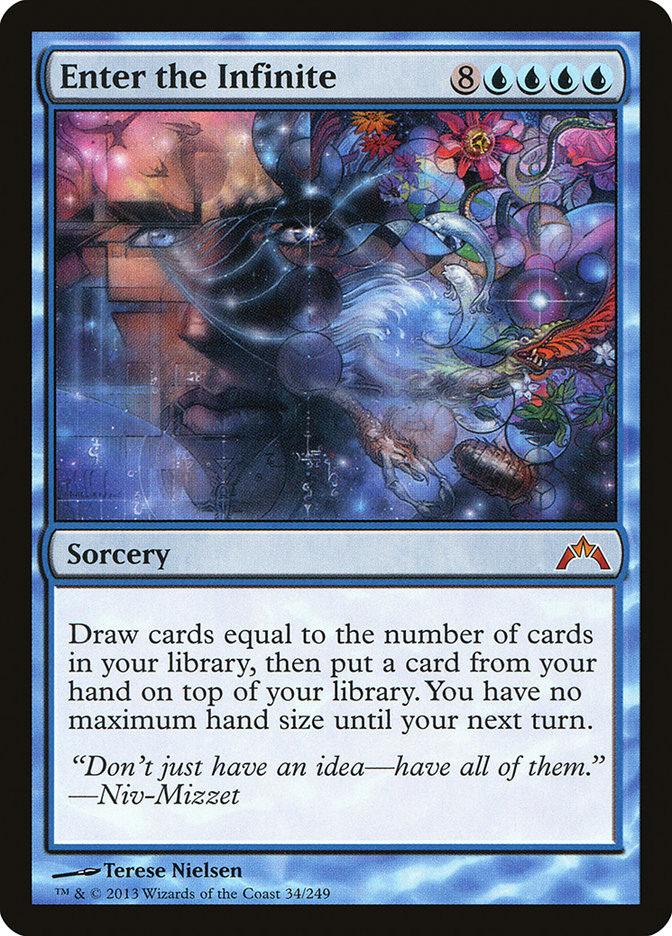This year has been a pretty intense roller coaster of a year so far. I’ve never traveled as much as I have this year, having gone to cities all over the east coast. From Columbus to Atlanta to Charlotte to Richmond. I’ve never had more fun playing Magic than I did this year. The amount of growing support has been overwhelmingly strong as well, and I couldn’t thank you guys enough. I know I’ve been aggressively critical of the Magic community as a whole, sometimes unfairly, but make no mistake about it: with all that goes on in our madhouse, I’m so proud to be a part of it. I wish I could properly translate my love for this game into words, but I guess those that have met me and had a conversation with me know how much Magic means to me and how much I want the game to succeed on every front. There’s so much more than the competitive aspect of the game that I’m always talking about. I could go on forever about the evolution of the design and philosophy of Chandra Nalaar, or how much the Judge community means to me, or my rather unhealthy obsession with flavor and set design, but that’s probably for another time.
So why am I telling you all of this? What’s the point?
Well, when I say that I want the game to succeed on all fronts, I mean that, but I wasn’t always doing what I could to help with that. I wasn’t always having fun, and it wasn’t until recently that I realized these things.
I guess I should start from the beginning.
A few months ago, I was pretty strong about my hatred for Legacy. Hate is an extremely strong word, one that I don’t just throw around like that, but when I say that I hated the format, I mean it. It got so bad that I would drop from Legacy events at 3-0 just to play Standard or Modern side events. I felt obligated to play in Legacy Opens like it was a job while everyone else around me seemed to always play it for fun. I just couldn’t wrap my head around it. Everyone loved this rich-kids club of a format that was infested with Yawgmoth’s Bargains that attacked for seven and gained seven, giant piles of spaghetti that hit you for fifteen and was a one-sided Obliterate on the way, free Force Spikes and land destruction, and Brainstorm…
Don’t get me started on Brainstorm.
Conveniently, I had this much negative emotion about the format right before Brian Braun-Duin, Huey Jensen, Gerry Thompson, and Brad Nelson all top 8’d last year’s Invitational n Indianapolis with the same deck. They played Sneak and Show.
Sneak and Show, also known as The Fun Police.
“Ha, that’s cute. Kill you.”
When that happened I strongly considered just quitting Legacy Opens altogether. I wanted no part of it. I felt that every deck decision I made was just the worst thing ever, and I was just wasting time. All of these specialists were getting praised for being just that, and all of the good players were just crushing every tournament they played in. I prided myself on doing things my way, not in a selfish or stubborn way, but in a free-spirited way. I’m an extremely emotional and passionate guy, so it felt like a huge smack to the face when that Invitational concluded. Yeah, I know, it sounds ridiculous, but when you choose to dedicate your life toward contributing to the growth and prosperity of the game, anything that I view as harmful to the growth of the game I take personally.
The problem with my feeling that way was that the root of the entire issue was an illusion created in combination by myself and the influences around me, mostly bad ones. The game wasn’t being harmed at all, just the game viewed from my eyes. The only thing that proverbially smacked me in my face was my own hand. I became incredibly selfish about the whole thing. I became exactly what I spent my career trying not to be: some closed-minded player that you overhear a few tables down always talking trash about the things that they don’t understand or appreciate.
For months, I’d be like this, taking every opportunity to come up with reasons to talk about how I disliked Legacy and loved Modern. I’ve always considered myself a Modern specialist but would get a lot of flak for it because “Legacy is the better format”. In my mind, this was my opportunity to take all of that and throw it back at them. I would fight constantly about it to the same negative influences that got me in this spot in the first place.
Something needed to change. Fast.
A little while later, I realized that I had a real shot at getting a bye for the Somerset Invitational in Season 3. I had to figure this out. Do I just suck it up and play one of the widely accepted “best” decks? Do I just play something I already have experience with and work on that?
There’s a lot of tension with the everlasting debate between playing the best deck versus playing what you know. I’m sure you’ve heard arguments on both sides, either from articles, your peers, or elsewhere, but I firmly believe that you can do both with relative ease. The word “best” in the context of Magic is one of the most misunderstood and misused words in the game’s history because of the lack of context applied to it. Instead, the absolutist undertones behind the word cause so many problems with its daily use. In its simplest form, the best thing for one player may not be the best thing for another player, but we constantly throw the word out without any context because it’s easy. Why put in the work to figure out what Player A’s skillset is? We’d have to do it for Player B and every player that comes along and asks. Most of us have an idea of what we feel is best, so doing a mental-to-verbal equivalent of copy and pasting where applicable is the quickest way of doing what we feel is helping. It’s a system that works because it’s simple, to the point, and gives the illusion that progress is being made. This is a great tool to have when someone just wants to have a quick fix for the short term, but what are we really doing to those that are trying to find their craft? Is it really a solution when the quick and easy method leads to more problems? Granted, there is no obligation to sit down with the person looking to develop, but is it really that much slower or that much more effort to go about this type of thing differently?
Here’s a suggestion to those that are on the giving end of things: before giving advice, try finding out a solution that’s relative to the recipient’s views.
Example: “Should I play Mono-Blue or Mono-Black Devotion?”
A quick and easy response would be: “Just play the deck that you think is better.”
A more detailed response would be: “It depends, do you feel more comfortable playing a heavy attrition game or a snowball style of aggressive strategy? I, personally, favor (insert deck here), but that’s me.” Then go from there. Always show your work. If you disagree with an assessment, explain why. If you believe something to be true, explain why. Be more open to what others may be accustomed to. Ask yourself: are you trying to help that person find what’s best for them, or are you pushing what’s best for you instead?
For those looking for advice, it’s important to make your preferences and shortcomings as clear as possible. If you get the quick and easy response, then a quick and easy departure is in order. Always ask questions and never settle. Sayings like “Play a real deck” don’t help anyone. Stick to those that give “real” advice. You know your style better than anyone else, so find players willing to work with you and your style. Magic is great because you can do whatever you want without limitations. At the same time, understand that you’re going to be wrong about your own assessments a lot, but contrary to popular belief, there’s nothing wrong with that. You don’t have to be this ultra-spike that everyone else wants you to be. I know that I’m not. Forget the labels. Forget the pressures associated with competitive play. Never let anyone tell you what you can and can’t do. If you want to play that five-color control deck, then who am I or anyone else to stop you? Find people that want you to be the best you. I promise you that they will be more valuable than any tournament result. With all of that said, it’s important to not keep yourself from branching out and trying new things. Sometimes you’ll find out things about your game that you never thought you’d have or enjoy.
In the words of Armin Van Buuren: “Never become a prisoner of your own style.”
I didn’t know it at the time, but I was struggling with trying to be the best me. I wanted to be just like my SCG peers: crushing tournament after tournament with a deck they knew inside and out, utilizing the most powerful decks in the format. I wanted the best of all worlds, but I couldn’t get anything to work for me. I was even caught snapping at some people because I was so frustrated with the format (Sorry guys!). From Sneak and Show, to Death and Taxes, to brews like RUG Cascade and Burning Reanimator. Everything felt miserable, one way or another. I was either not playing something established, resulting in relentless backlash from others, or it was overwhelmingly stressful to wrap my head around, resembling a punishment for not having a playstyle relatable to others. I don’t really operate with functions that favor the playstyle of Elves. Sneak and Show was halfway there with Show and Tell giving me the most invincible feeling ever, but the other half just felt super unenjoyable. Maybe I was being too picky. Maybe I was asking for too much out of the format. Maybe I just needed to suck it up and pick a deck. I would be going against what I believed in since I started playing Magic: never play anything that makes you miserable at a tournament.
But getting this bye was so important to me.
The stress started building even more as the Opens and IQ’s passed by…
Then I got to know Joshua Edelstein.
The name may sound familiar to you, as he recently got his first SCG Open top 8 in Worcester last weekend playing G/B Pox. What you may not know is that he is one of the biggest Legacy advocates in the northeast, and he’s regularly helping other players get into the format. I was a big fan of how in tune he was with himself and what he wanted out of the game, and he’s been the biggest positive influence for me and my wanting to do the same. He’s been playing G/B Pox forever because that’s what he’s able to get out of his game. He understands what he wants, how he wants it, and he’s done all the right things to be the best Josh Edelstein he can be in Magic. This was what I needed to do, and I did a little bit of soul searching to get started on that path. It was after being good friends with Josh that I started figuring things out. There’s a reason why Josh plays Pox, Joe Lossett plays Miracles, Feline Longmore plays High Tide, and so on. It was time I specialized in something and finding the process of realizing that was the hard part.
The two decks I played the most in Legacy were Jund and Omni-Tell, as I’m sure I’ve stated in an article or two beforehand. I enjoyed Jund a lot because cascade is one of my favorite mechanics, and Bloodbraid Elf is one of my favorite cards. I also liked how Punishing Fire was so brutal against anything trying to “play fair”. My issue with Jund was how flimsy it was against combo decks and how much you had to overcompensate for it. Not having Brainstorm also made things worse because of how much you wound up falling behind if you failed to control the board state.
Omni-Tell was the very first Legacy combo deck I ever played. It was also casting spells for free, but in a much, much bigger way. The “invincible” feeling of the card Show and Tell is still intact, which was the half of Sneak and Show that felt awesome, but the second half was probably the most fun I’ve ever had casting a card.
It was like falling in love all over again.
Now, I’m no stranger to Omni-Tell. I’ve played it for a couple of months before. I just wound up jumping ship because I didn’t give it a fair chance. The amount of “the deck’s not good”, “just play Sneak and Show”, and “you just lose to (insert deck here)” I would hear got to me. With Edelstein’s help and support, however, things were very different. It was wrong of me to let the deck go so quickly. Legacy is such a ridiculously difficult and complicated format that your margins of victory are way more dependent on play skill than deck choice. I decided to give it another shot, and everything just flowed together instantly. The weird part is that I had never, ever played combo before when I first picked this deck up. I used to strongly dislike combo decks in general, but there’s just something about playing this that resonates strongly with me. This goes back to being willing to go out of your comfort zone to find things you just might enjoy.
I was now at home with a deck, but there was still so much more work to be done, not just with points for obtaining a bye, but with the Legacy community as a whole. I was very unhappy with how I handled myself during that time, and I know that the true Legacy advocates out there love their format as much as I love Modern. I would have hated it if someone talked about Modern the way I did Legacy, and I think that if we’re going to promote the growth of either (or any format), then there needs to be more inviting ways of getting players from one format to another. Saying cliche, subjective things like “Legacy/Modern is a better format” is a very closed-minded way of trying to convince someone to play and is not a decision you should be making for someone exploring either format (or anything, for that matter).
I think that cost is a real factor when getting into Legacy for most Modern players. Investing into a format is a big jump, and Mr. Edelstein had this to say about the topic:
“I think this is a real struggle a lot of players have. Legacy is a difficult format to break into not only financially, but mentally. The format rewards those with knowledge of it. The financial restrictions on the format make it difficult to learn and mentally commit to. If you can’t mentally commit to a deck, why would you financially commit?“
If we’re going to have more players play the format, then we need to work toward making more decks accessible to them. One of the better short-term ways of making this happen is through the use of shock lands. There are plenty of decks in Legacy that are incredibly difficult to build because of the manabase, but if the investment is more incentivized by shaving a few hundred dollars off, and if it means they get to play the format sooner, then I certainly don’t see a problem with it at all. Obviously it won’t be optimal, but that isn’t the point here. We want to get more players playing, and card availability is a huge thing preventing players from doing so. I recall hearing about Chris VanMeter playing against a U/B Reanimator player playing some Watery Graves pretty deep into the Legacy Open, and I think we not only should see more of it, but eventually will. Drew Levin did a series on getting into Legacy some months back, and most of that information is still very much usable. Throw some shock lands into the mix, and you now have an even easier time getting the non-land staples of whatever you want to play. In fact, part of the reason why I’m going with Omni-Tell is because of how much cheaper it is when compared to its Sneak and Show counterpart (though it’s not as big of a deal for me as it would be someone else). Heck, part of the reason why you see a fair bit of Jund decks in Legacy is because the transition is the easiest out of any other deck, only requiring the manabase and a few other less expensive cards (which, again, can be sprinkled with shock lands if needed).
For the long term, I think that more of the aforementioned crossover support for Legacy and Modern needs to be done. Legacy players have experience on their side, and there are definite deck analogues for most popular archetypes. If you own Death and Taxes or Maverick in Legacy, then chances are you’ll be at home with G/W, Mono-White, or B/W Hate Bears. If you love Delver, then you’ll probably be fine playing that in Modern too. The big key here is to network. Build up a community that wants to see both formats grow. If you trust a friend of yours that has a Modern collection, see what you can do to help them port their deck over to Legacy. Now that there are Modern Premier IQs at SCG Opens, I will carry an extra U/R and RUG Splinter Twin deck on me for trustworthy friends wanting to play the format, either for the first time, or who are unable to because their collection primarily consists of Legacy cards. I get that it’s easier said than done, and I’m not suggesting that we just lend out entire collections out to random people we don’t know and completely trust, we just don’t need to make this a “Legacy vs. (insert format here)” deal like I tried to make it. There’s no reason why we can’t help all of our formats grow equally regardless of what our personal preferences are. I have a newfound appreciation for Legacy, and I think I’ve finally found my place.
What do you think we can do as players to help promote the two most popular Eternal formats? How else can we be more constructive in bringing out the best in other players?




